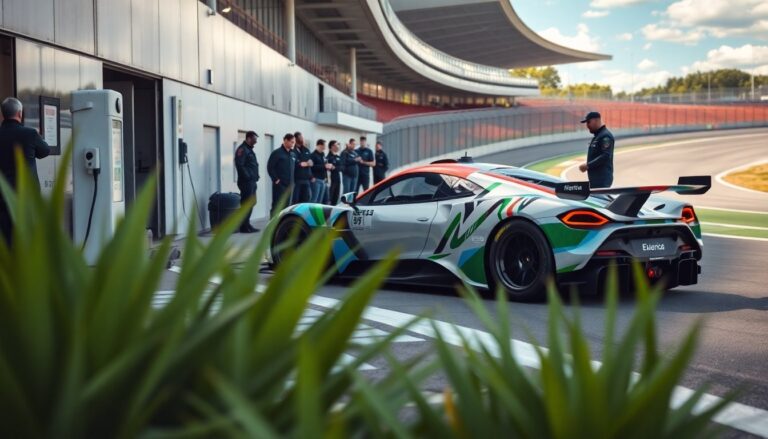Argomenti trattati
Exploring the future of motorsport sustainability
As motorsport continues to captivate audiences worldwide, a significant trend is emerging: the push towards sustainability. This shift is not merely a response to regulatory pressures but a recognition that environmental responsibility can drive innovation and enhance brand value.
Emerging sustainability trends in motorsport
From electric vehicles to biofuels, the motorsport industry is embracing a range of sustainable practices. The integration of circular design principles is becoming standard, with teams increasingly focused on reducing waste and enhancing resource efficiency throughout the lifecycle of their vehicles. Leading companies have understood that adopting these practices not only addresses environmental concerns but also meets the growing demand from fans and stakeholders for responsible operations.
Business case and economic opportunities
The shift towards a carbon-neutral motorsport ecosystem represents both an environmental necessity and a compelling business case for teams and sponsors. Companies investing in sustainable technologies and practices can anticipate a favorable return on investment, driven by the increasing consumer demand for eco-friendly options.
Implementing sustainability in practice
For effective implementation of sustainability strategies, motorsport organizations need to conduct thorough life cycle assessments (LCA) to gauge the environmental impact of their operations. This process requires analyzing emissions across scope 1, 2, and 3, ensuring a comprehensive evaluation of all production and racing facets.
Pioneering examples in the industry
Leading teams are driving sustainability initiatives in motorsport. The Formula E series exemplifies this with its all-electric racing, proving that motorsport can be both exhilarating and environmentally responsible. Furthermore, F1 has committed to achieving a net-zero carbon footprint by 2030, highlighting its dedication to sustainable practices.
Roadmap for the future
The sustainability of motorsport hinges on ongoing innovation and collaboration among stakeholders. Establishing robust sustainability frameworks and sharing best practices will be crucial. By prioritizing sustainability, the motorsport industry can enhance its competitive advantage while contributing positively to the global movement towards a greener economy.

